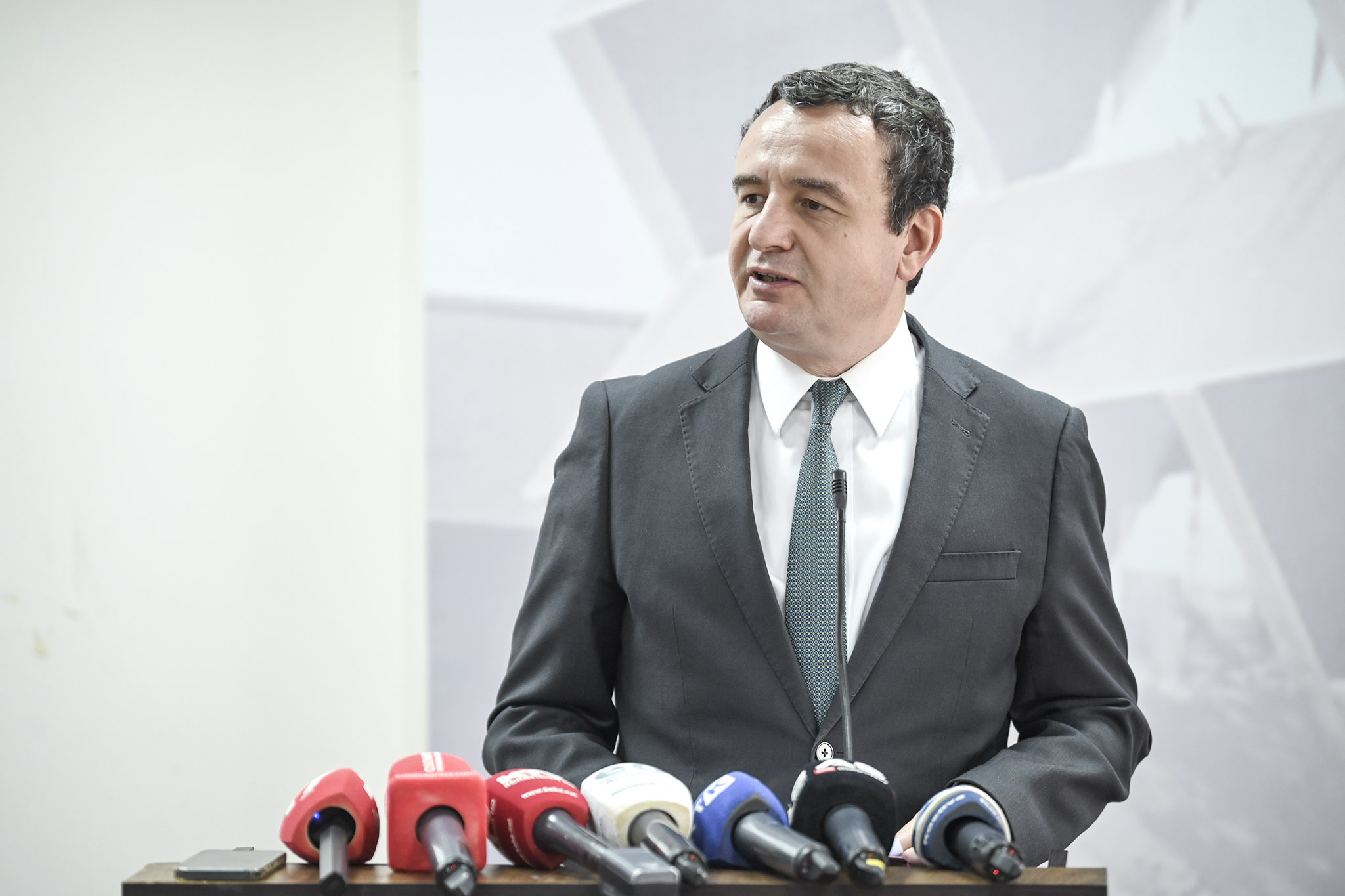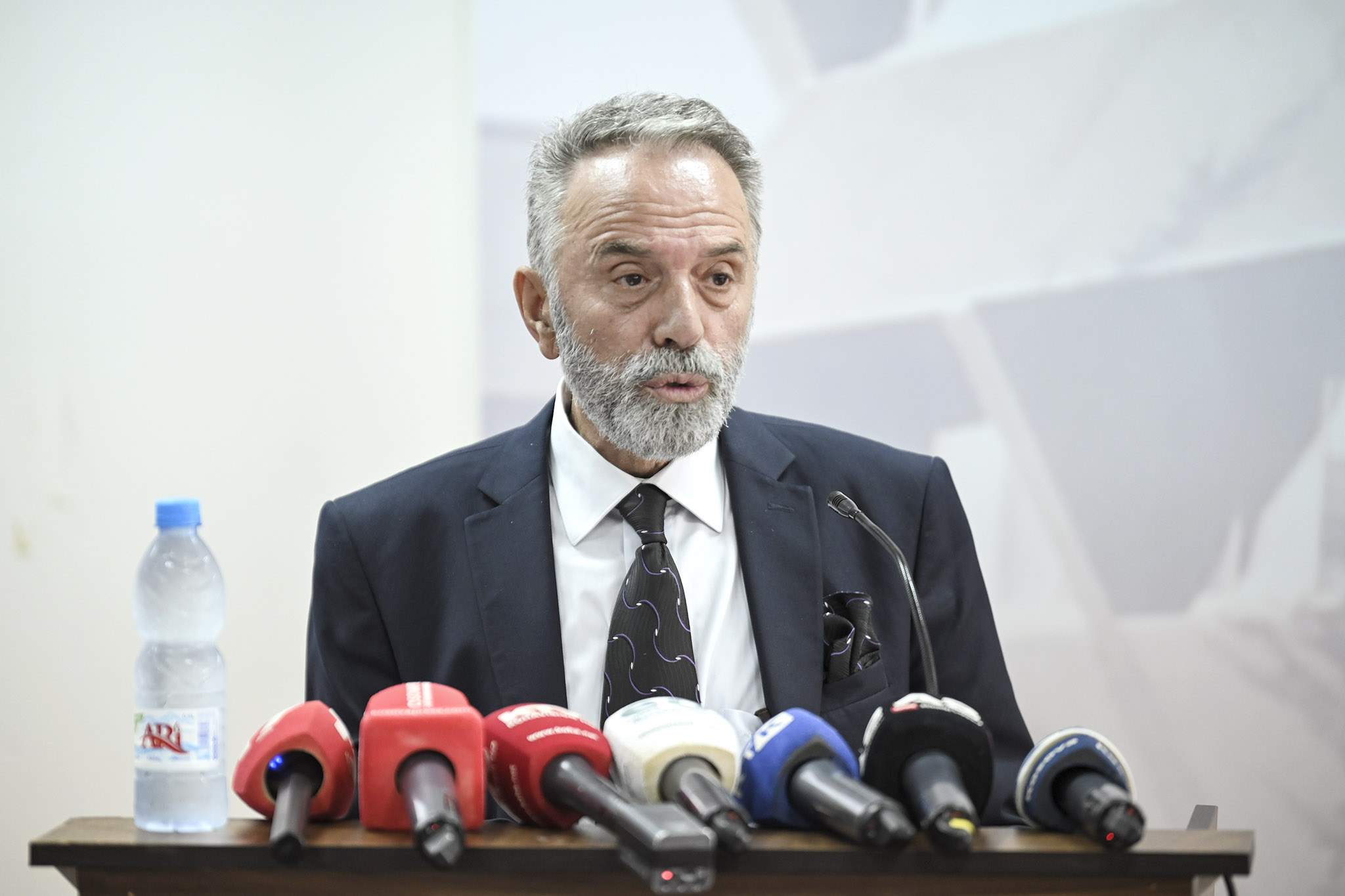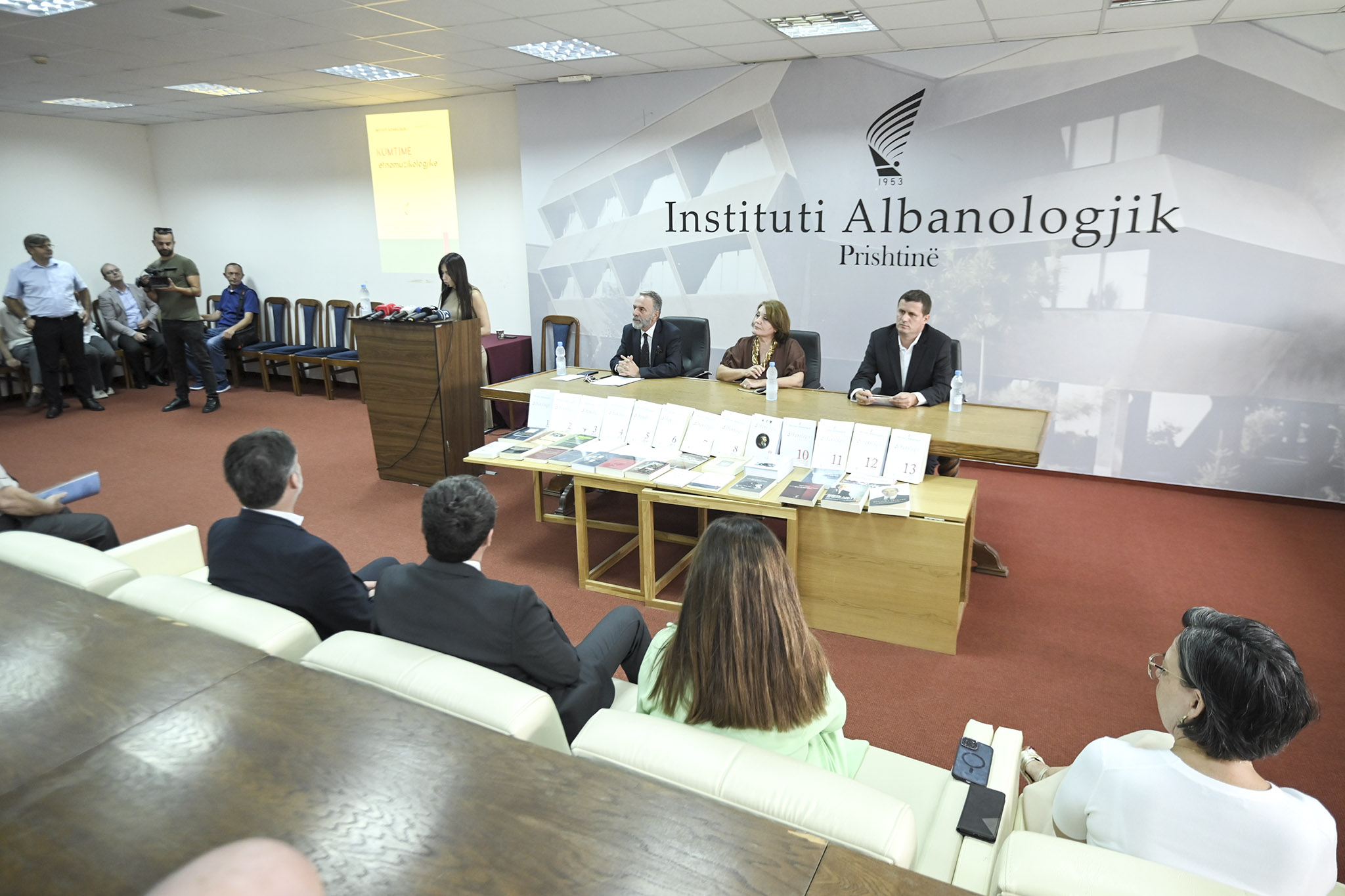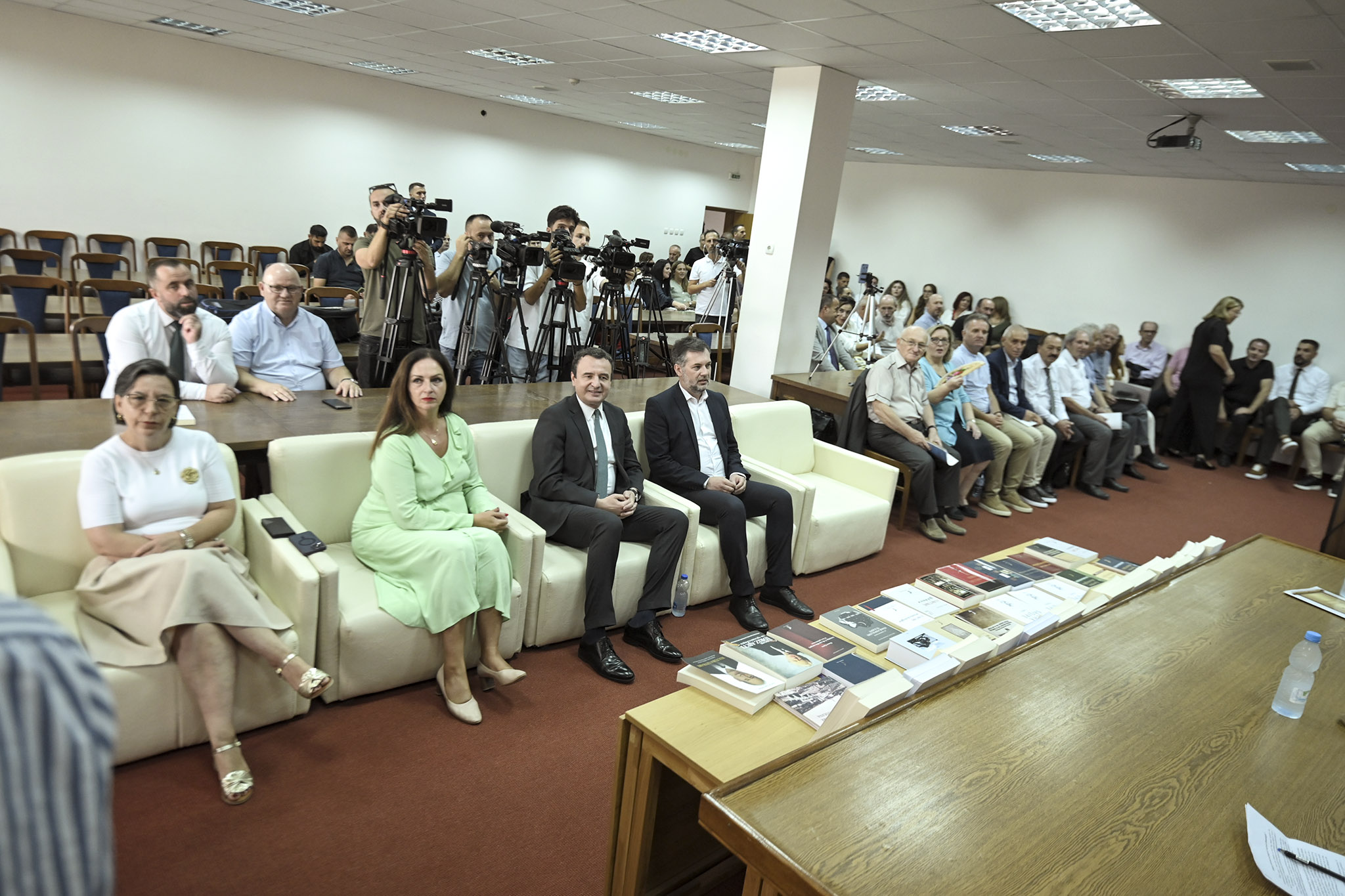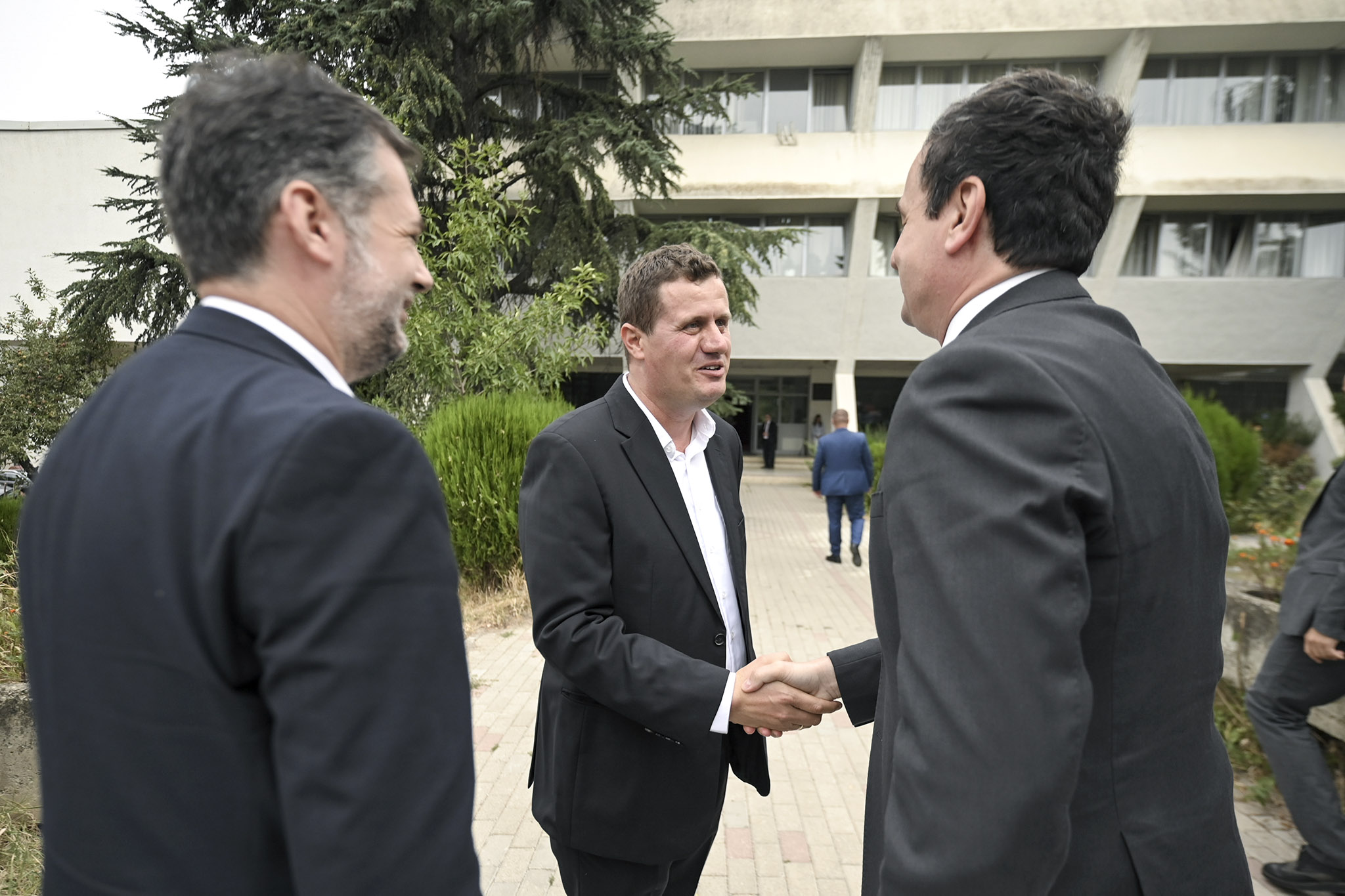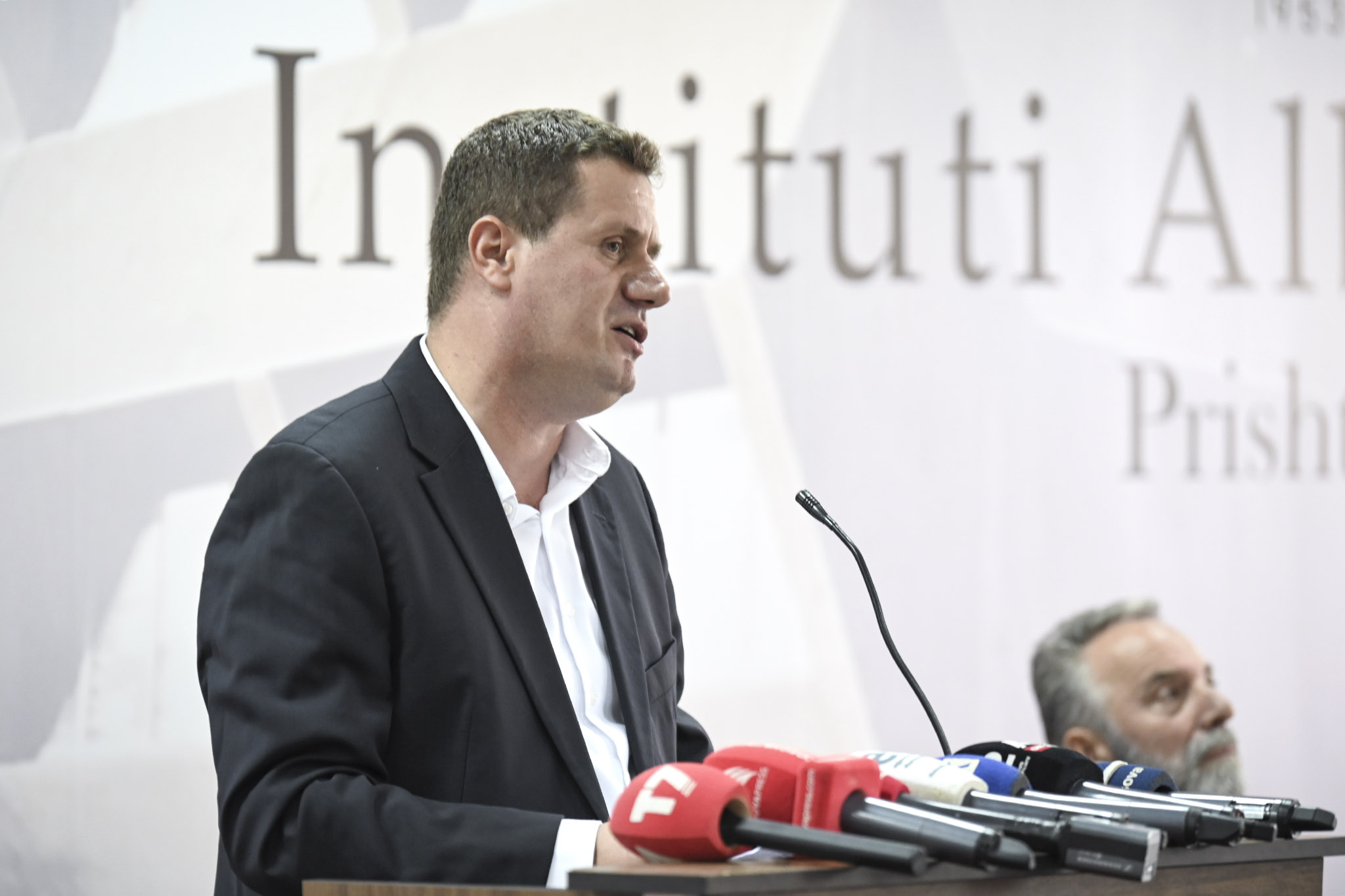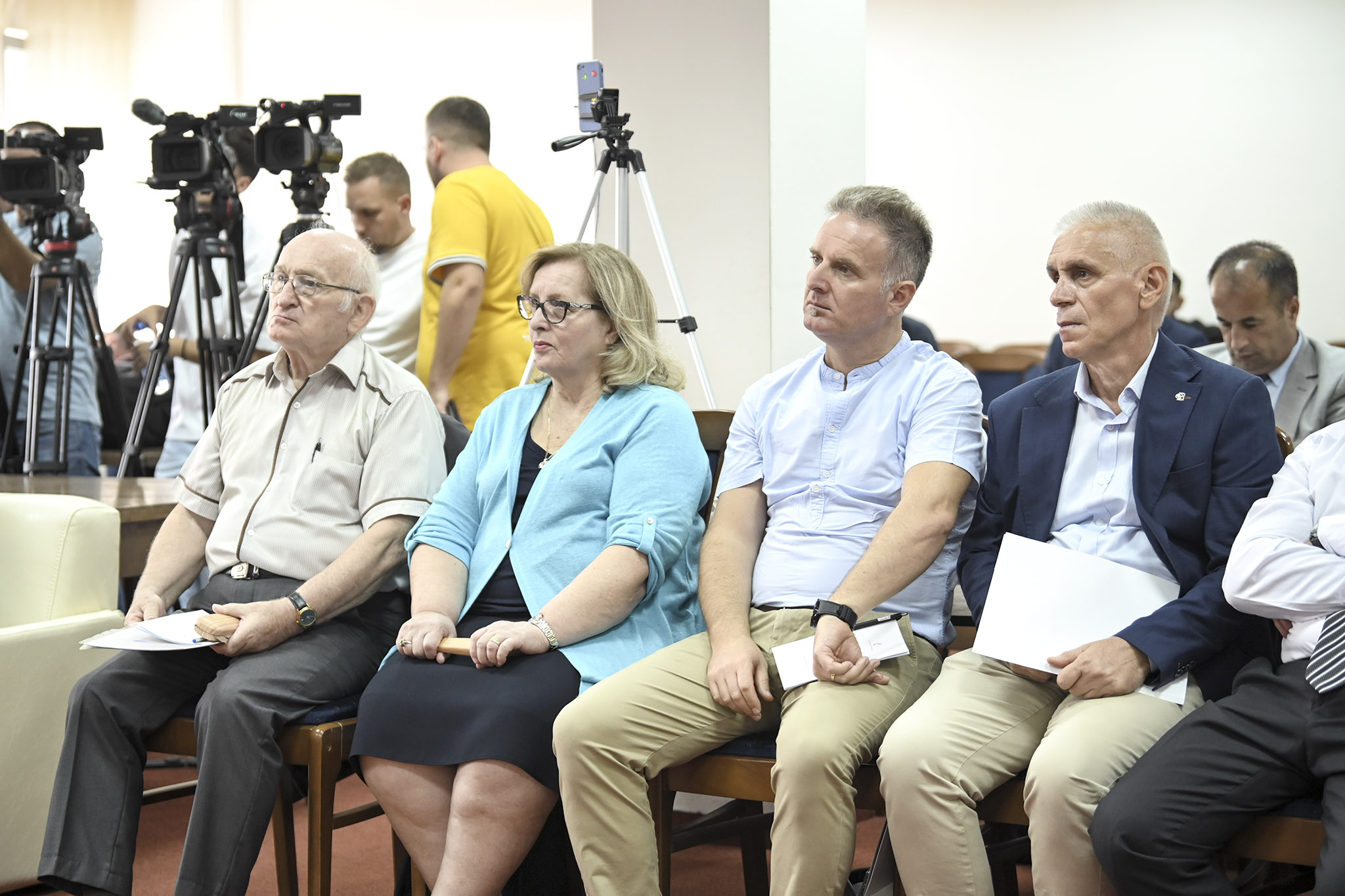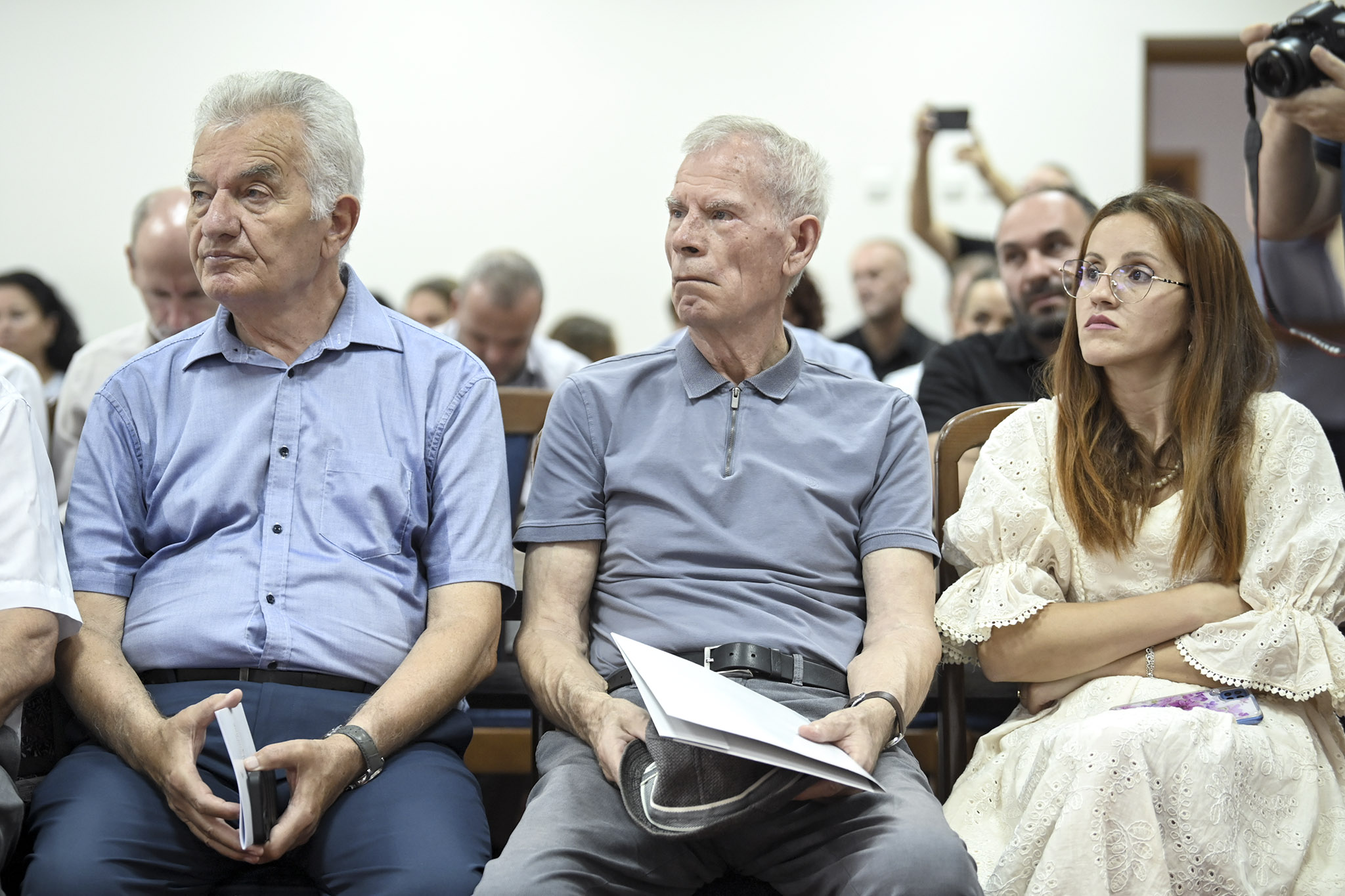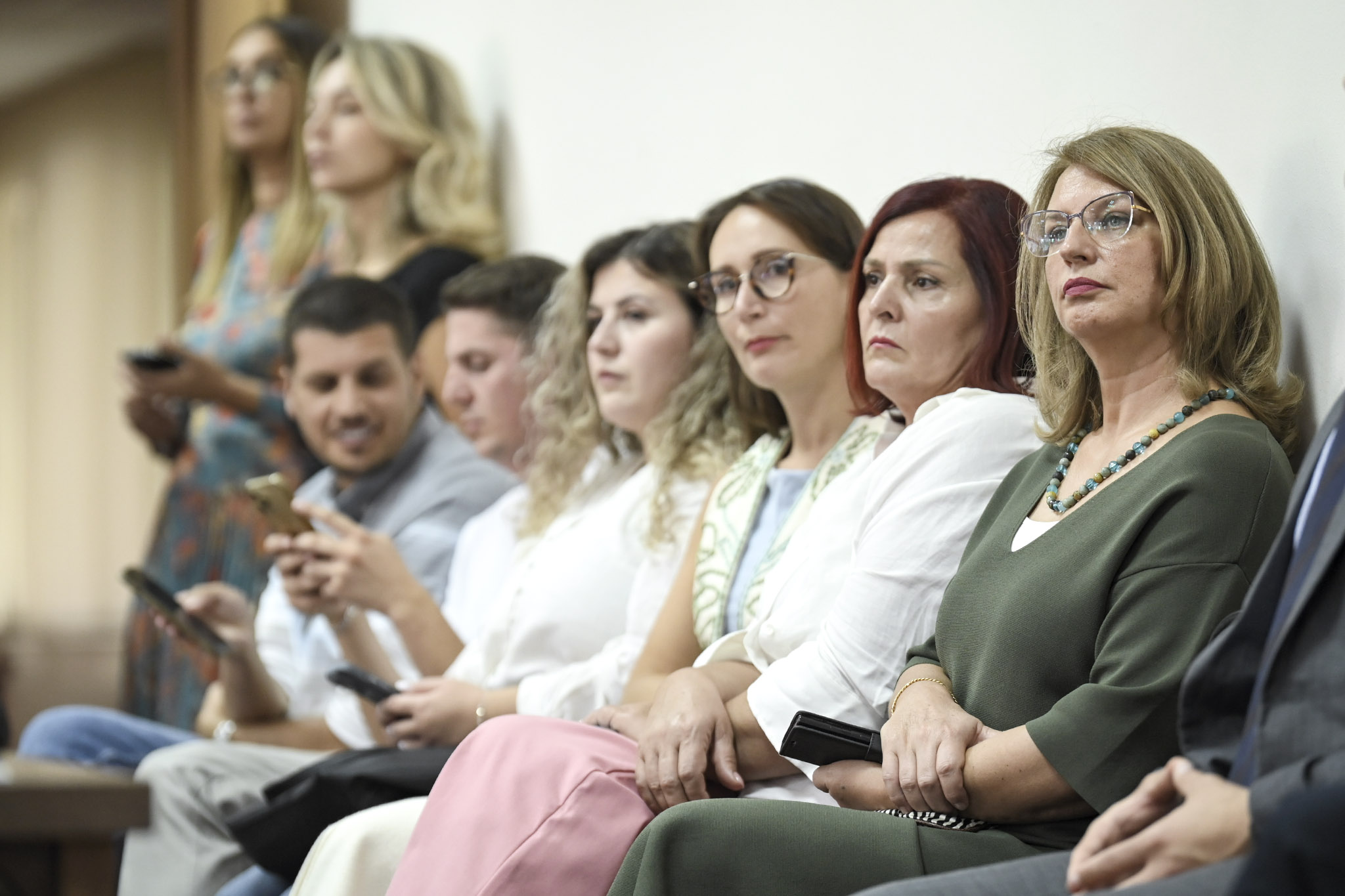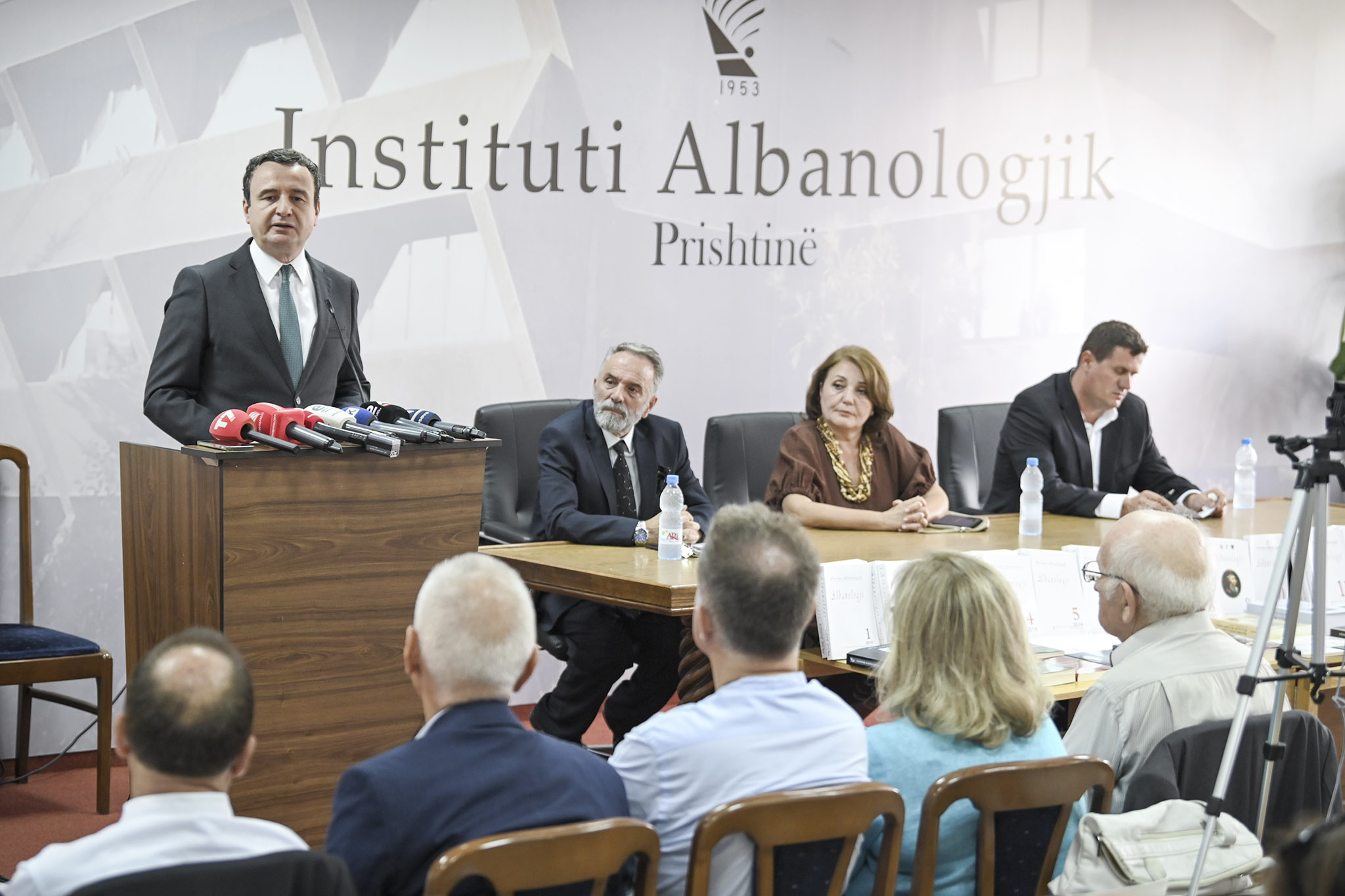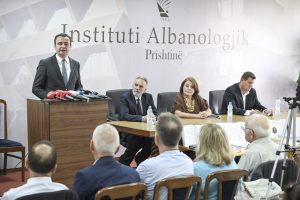Prishtina, September 9, 2024
The 15th edition of the scientific conference “Albanology Week” has started today, organized by the Albanological Institute of Prishtina, which gathers distinguished Albanian and foreign albanologists to discuss and share studies and achievements in the fields of language, ethnology, folklore, literature, and Albanian history.
At the grand opening of this year’s edition, the Prime Minister of the Republic of Kosovo, Albin Kurti, was present and gave a keynote speech in which he first highlighted the basic knowledge of Albanian studies, that of the XVIII-XIX century, which played a significant role in the national revival of the Albanians in the latter half of the XIX century.
Our distinguished Renaissance figures – among them the Frashëri brothers and Pashko Vasa, up to Faik Konica and Fan Noli, etc. – utilized the scientific achievements of Albanology to shape our national orientation and to refute the unscientific claims and racist propaganda of neighboring chauvinists,” he said, before adding that for our Renaissance figures, “the Albanian issue” did not only mean determining the origin of the nation and language, defining the territorial extent of Albanians, writing the Albanian language with a unique alphabet, but also establishing the Albanian national state.
Having witnessed how the academies and scientific institutes in former Yugoslavia processed the theses of genocide against the Albanians, the Prime Minister expressed pride that the array of Albanian albanologists, starting from Kristoforidhi to Selman Riza, Eqrem Çabej and Idriz Ajeti, Stavro Skëndi, Anton Berisha, Aleks Buda, Anton Çeta, Shaban Demiraj, etc., did not have a condescending or denigrating attitude towards the cultures and histories of the neighboring peoples of the Albanians. He added that today Albanian knowledge is nurtured by several scientific research institutions in Albania, Kosovo, North Macedonia and in countries where the researchers of the language, literature, culture and history of Albanians work and live, and that it is no longer hindered by the political restrictions that existed during dictatorial regimes.
Aware of the national importance of Albanology, the Prime Minister highlighted the Government’s contributions under his leadership in continuous support through backing the organization of the International Seminar on Albanian Language, Literature, and Culture, which last month welcomed researchers and Albanologists from 14 different countries around the world, then student scholarships for students pursuing programs in Albanian Language and Literature at the Philological Faculty of the University of Prishtina, and cooperation with the Government of the Republic of Albania to support joint research projects, including the implementation of the major project in Albanology “Albanian Encyclopedia”.
At the end of his speech, he wished everyone good work and valuable discussions to the scholars, while congratulating the Albanological Institute for organizing this annual scientific conference, promising that the Government’s support will never be lacking.
Prime Minister Kurti’s full speech:
Honorable Ms. Arberie Nagavci, Minister of Education, Science, Technology and Innovation,
Honorable Mr. Hajrulla Çeku, Minister of Culture, Youth, and Sports,
Honorable Mr. Lulezim Lajçi, Acting Director of the Albanological Institute,
Honorable Professor Florentina Gega – Musa,
Honorable scientific secretary Adil Olluri,
Honorable members of the Academy of the Organizational Council,
Honorable professors, researchers, and workers of all branches of the Albanological Institute,
Ladies and gentleman,
Honorable attendees,
I am honored to greet the beginning of the jubilee scientific conference “Albanology Week” organized by the Institute of Albanology in Prishtina. Esteemed Albanian and international scholars will have the chance to exchange their accomplishments in linguistics, ethnology, folklore, literature, and Albanian history during the conference. Now “Albanology Week” has become a beautiful tradition and I hope it continues, lively and diverse, in the future!
In the term “Albanology” are gathered knowledge from several scientific disciplines related to the origin, history, and culture of the Albanian nation. As such, it started as an interest of foreign scientists such as Gustav Mejer, Georg von Hahn, Jakob Philipp Fallmerayer, Norbert Jokli, etc., with the “Albanian issue”. For them, the “Albanian issue” mainly had to do with the scientific determination of the origin of the history of the Albanian nation and its language, as well as the place that the latter occupied in the mosaic of Indo-European languages. Initial Albanian knowledge, that of the XVIII-XIX c. played a significant role in the national revival of the Albanians in the latter half of the XIX century . Our distinguished intellectuals – including the Frashëri brothers and Pashko Vasa, up to Faik Konica and Fan Noli, etc. – utilized the scientific achievements of Albanology to shape our national orientation and to refute the unscientific claims and racist propaganda of neighboring chauvinists. For our national revivalists, the “Albanian issue” did not only mean defining the origin of the nation and language, determining the territorial extent of the Albanians, writing the Albanian language with a unique alphabet, but also establishing the Albanian national state. In this way, Albanology among Albanians arose as an active and militant knowledge, closely linked to the rise of our national consciousness. It was part of the effort to protect the rights and national interests of Albanians in the Balkans. Indeed, we were learning to better protect ourselves.
This effort also continued in the XX century . We witness that the academies and scientific institutes in former Yugoslavia elaborated on the theses of genocide against Albanians. Therefore, the departments of Albanian language, ethnology, and history in Tirana and Prishtina had to argue with the language of science that Albanians were not latecomers in the Balkans, that the Albanian people had their own history, alongside other Balkan peoples, and that Albanian culture was as unique as the cultures of other peoples in the Balkans on our continent of Europe. Overall, we are proud that the constellation of Albanian albanologists, starting with Kristoforidhi and up to Selman Riza, Eqrem Çabej and Idriz Ajeti, Stavro Skënda, Anton Berisha, Aleks Buda, Anton Çeta, Shaban Demiraj, etc., has not had a condescending or denigrating approach towards the cultures and histories of the neighboring peoples of the Albanians.
Today, Albanological knowledge is nourished by several scientific research institutions in Albania, Kosovo, North Macedonia, and in countries where researchers of the language, literature, culture, and history of Albanians operate and live. Albanology is no longer hindered by the political restrictions that existed during the dictatorial regimes, now communications between Albanian researchers and foreign albanologists are uninterrupted and develop normally. Scientific research in language, literature, ethnology, history, and folklore is conducted according to the vocation of researchers and the theories and arguments of science. As evidenced by the themes of “Albanology Week” over the years, Albanology responds to the challenges of the time, such as I see in this year’s program the changes that traditional rituals may have undergone during the Covid-19 pandemic, where physical contact and gatherings of people – including for weddings and funerals – were strictly prohibited, and where traditional or ritual clothing had to be supplemented with a mask covering part of the face. It seems interesting to me the current interest in the history of entrepreneurship in Kosovo, at a time when we are taking institutional steps to revitalize this economically important and strategically crucial sector for growth and the future.
Knowing the national importance of Albanianology, as the Government through the Ministry of Education we have continuously contributed to its support. In the past month, we have supported the organization of the International Seminar on Albanian Language, Literature, and Culture, which welcomed researchers and Albanian studies scholars from 14 different countries around the world.
In order to stimulate young people to orient themselves towards Albanology, two months ago, we also made the decision to allocate bachelor’s and master’s scholarships for students pursuing programs in Albanian Language and Albanian Literature at the Faculty of Philology at the University of Prishtina. Due to this, in this academic year the number of applications to the Albanian Language program has increased from 20 as it was last year to 105, and in Albanian Literature from 6 as it was last year it is now 79.
We have signed a series of agreements with the Ministry of Education and Sports of Albania to support joint research projects. In collaboration with Albania, we are carrying out the major project in Albanology “Albanian Encyclopedia”. A research and promotional work with 10 volumes, a project which is expected to be implemented within a 5-year period.
I wish the researchers a successful week in this Albanian week. On behalf of the Government of Kosovo, I congratulate the Albanian Institute of Pristina as the host of this annual event and I promise that you will never lack our support even in the future!
Thank you!

